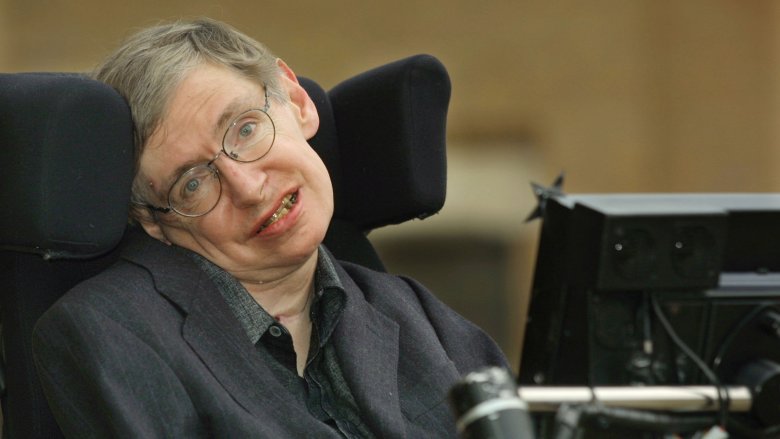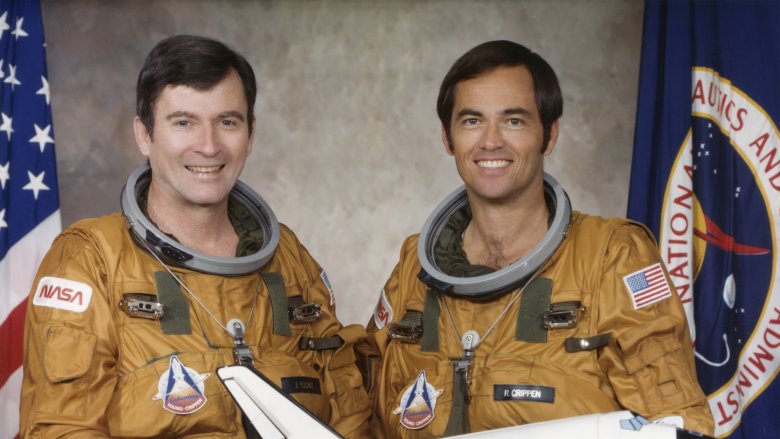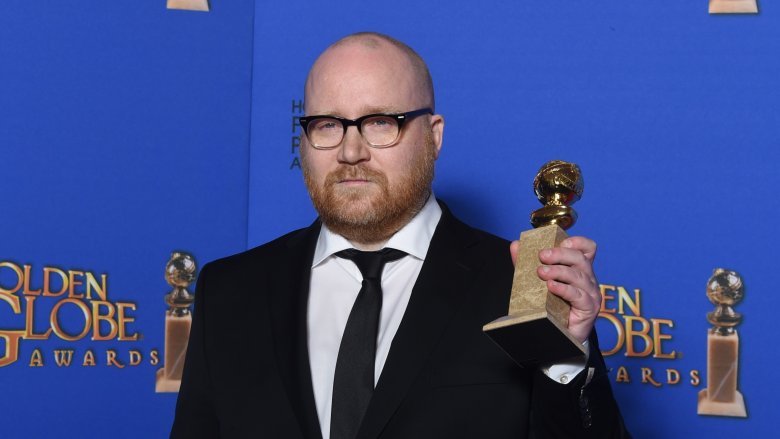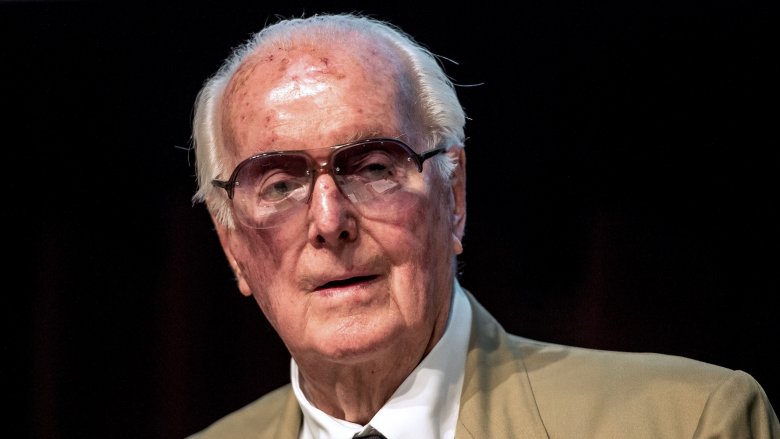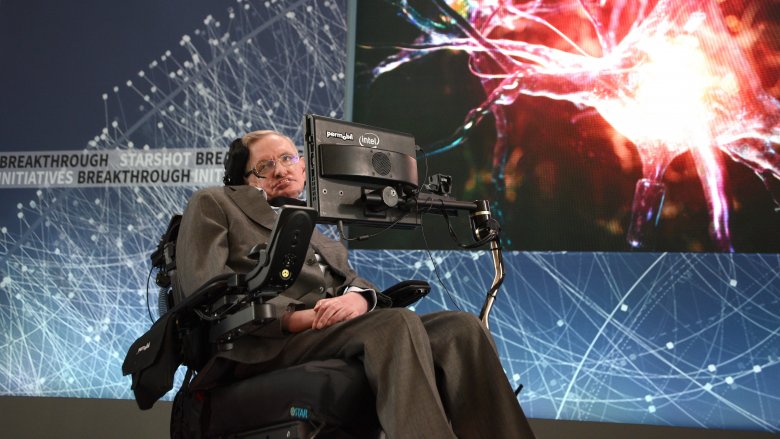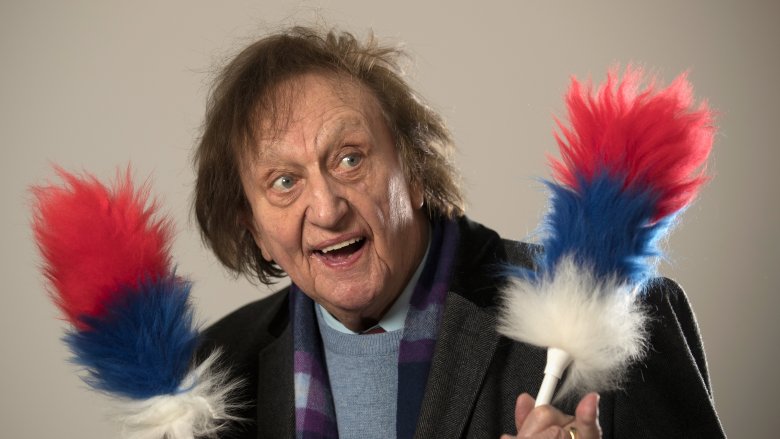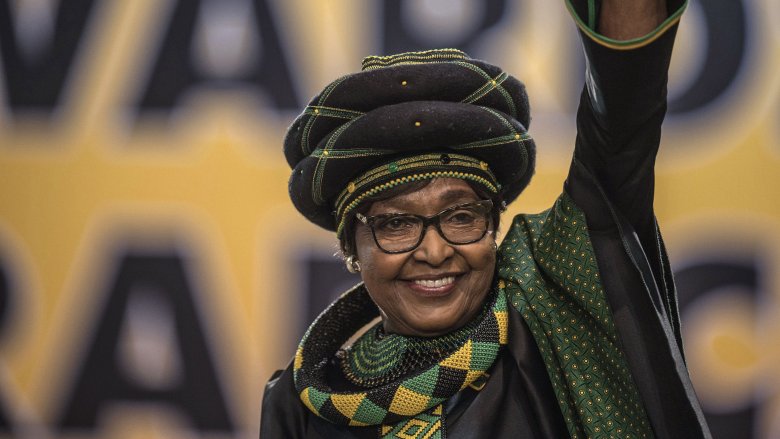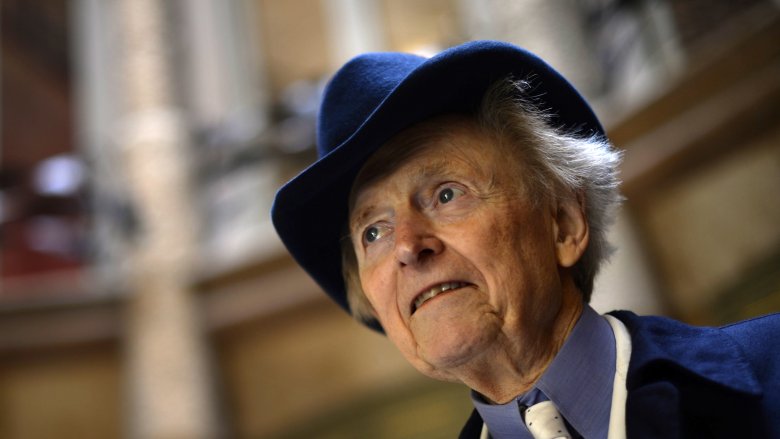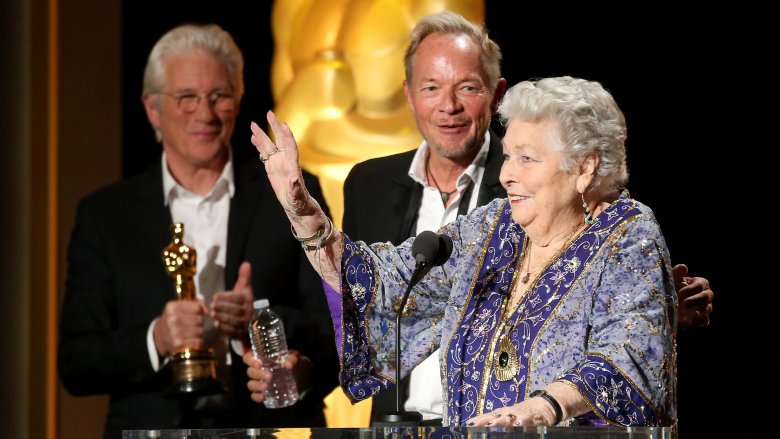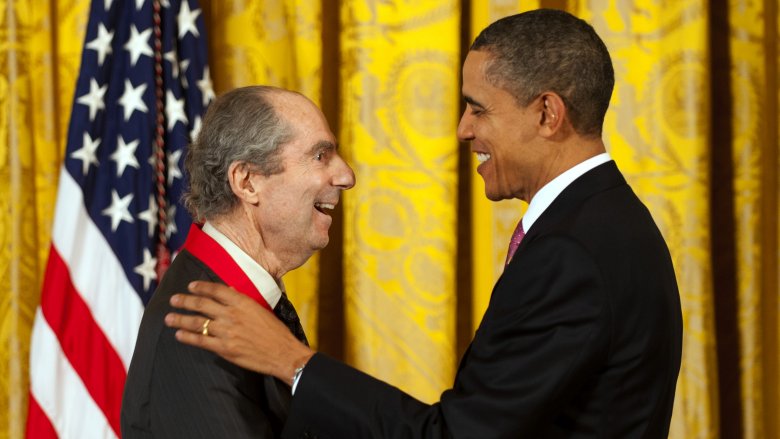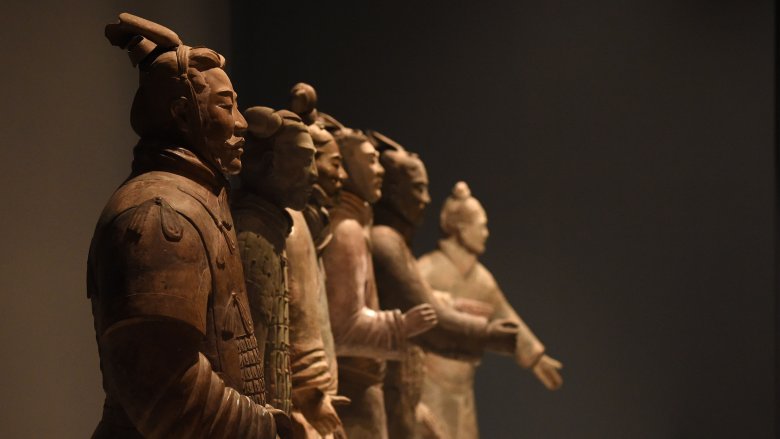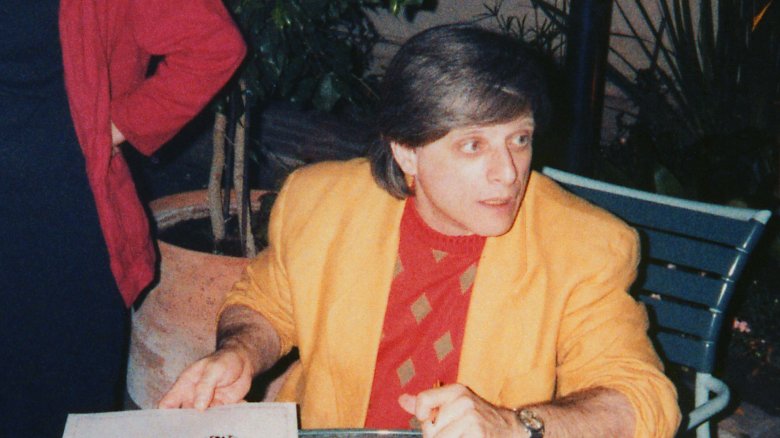Brilliant Minds We've Sadly Lost In 2018
Every year takes its toll. The last few years, however, seem to have been especially unkind to humanity's most renowned. Bowie, Prince, Alan Rickman, Harper Lee, Carrie Fisher, B.B. King, Christopher Lee — the list is as long as it is diverse. For some time now, it's seemed that every week brings with it a new, devastating death. Naturally, 2018 appears to be no different.
In 2018, we've lost some of the world's most brilliant minds. From scientists to novelists to astronauts to activists, each of these people wrote their names into history in their own unique way, and their losses were felt deeply throughout the industries in which they worked, the communities they assisted, and the wider global population as a whole. Despite their many differences, they were all alike in the incalculable impression they made upon mankind during their time with us. Their lives should be celebrated, their passing mourned, and the impact of their brilliant minds never understated.
John Young, NASA's golden boy
John Young was born in San Francisco in 1930. He grew up in Florida, where he graduated from high school before moving to Georgia to receive his degree in aeronautical engineering. He soon joined the Navy and became a test pilot at the Navy's Air Test Center. In 1965, Young embarked on his first mission as a NASA astronaut. Four years later, he piloted a command module on the Apollo 10 mission, which acted, according to NASA, as a "dress rehearsal" for the Apollo 11 landings a few months later.
In 1972, Young commanded the Apollo 16 mission and took his first steps onto the Moon, in the Descartes Highlands. After that, he went on to command the Space Shuttle, the first Spacelab mission, and the Astronaut Office at Johnson Space Center. He has received the Congressional Space Medal of Honor (which might be the coolest thing in the entire universe) among a host of other medals and awards. He tabbed a gargantuan 835 hours in space over the course of his life.
In January 2018, Young died of complications from pneumonia at his home in Houston, Texas.
Jóhann Jóhannsson, Iceland's finest composer
It's possible to make a decent argument that Jóhann Jóhannsson was one of the best composers working in Hollywood prior to his death in February 2018. He grew up in Reykjavik and released music as part of a handful of bands during the late '80s before going on to enjoy a career as a solo artist. It was in film, however, that Jóhannsson found his niche. He won a Golden Globe for his work on The Theory of Everything (2014's Stephen Hawking biopic) and received considerable critical adulation for his collaborations with Denis Villeneuve, which included Sicario (for which he was nominated for a BAFTA and an Academy Award) and Arrival.
Jóhannsson was only 48 when he was found dead in Berlin. His cause of death remains unknown. Director Aaron Moorhead, broadcaster Edith Bowman and producer/DJ Flying Lotus were among those who paid tribute to him and his work.
Hubert de Givenchy, designer for the greats
Founder of the French fashion and perfume house that bears his name, Hubert de Givenchy — or, to give him his full name, Count Hubert James Marcel Taffin de Givenchy — was a titan in the fashion world. Born into Franco-Italian aristocracy in 1927, Givenchy moved to Paris at the age of 17 to study fashion at the city's École des Beaux-Arts. He is best known as the designer of the iconic black dress Audrey Hepburn wears in Breakfast at Tiffany's. Hepburn and Givenchy would go on to become close friends for life.
The designer was known for his timeless yet innovative designs, worn and loved by a clientele that included Princess Grace of Monaco, Jane Fonda, Bunny Mellon, and Babe Paley. In 1988, Givenchy sold his company for $45 million before retiring for good in 1995. He died in March at the age of 91.
Stephen Hawking, humanity's brightest star
If there's anyone on this list everyone will know, it's Professor Stephen Hawking. The world's most famous physicist and "humanity's brightest star" died in 2018 at the age of 76. Hawking was a testament to strength in the face of adversity. Diagnosed with motor neurone disease and given only two years to live at the age of 21, he nonetheless went on to become one of Cambridge's foremost scientific minds.
The later decades of the 20th century were punctuated by Hawking's breakthroughs, and by 1979 he was the Lucasian Professor of Mathematics at Cambridge. A decade later, he had become a household name and one of history's best-selling authors. In the years leading up to his death, Hawking had been a vocal proponent for space colonization and a harsh critic of developments in artificial intelligence.
Professor Hawking finally succumbed to his disease in March, 55 years after his diagnosis. He is remembered for his quick wit, his love of controversy, and his truly brilliant mind.
Sir Ken Dodd, history's quickest-witted comedian
Sir Ken Dodd was a British comic whose widow, after his death, would describe him as a "most life-enhancing, brilliant, creative comedian." He had been working since the middle of the 20th century, and became the comedic face of Liverpool during that time, even going on to meet and befriend the Beatles. He was best known for the length of his stand-up performances, which could often run on for hours at a time.
Perhaps his greatest achievement, however, was his entry into the Guinness Book of Records in the '60s for telling a record-smashing 1,500 jokes in three and a half hours. Elsewhere, he was also a musician and singer who topped the British charts, and a regular presenter on television. All in all, he was one of the most beloved comedians in the U.K. He was hospitalized in early 2018 for a chest infection; he died at the age of 90 in March.
Winnie Mandela, revolutionary and activist
Yes, Mandela. Winnie — full name Winnie Madikizela-Mandela — was once the wife of legendary anti-apartheid revolutionary Nelson Mandela and easily lived a life as important as her ex-husband's. Winnie was born in Bizana, South Africa, in 1936. She married Nelson in 1958 and remained with him throughout his imprisonment by the South African government. While he was imprisoned, Winnie became a prominent leader in the anti-apartheid movement and found herself on the receiving end of the abuse that came with that role: surveillance, torture, banishment, and imprisonment.
Winnie died in April 2018, but the attacks on her didn't end with her passing: many in the world media labeled her as "odious," "toxic," and a "bully." Despite this, there can be little doubt that Winnie's impact on South African society during the 20th century was truly momentous, and that, whichever side of the argument you come down on, her role in world history was a great one indeed.
Tom Wolfe, a pioneer of journalism
Tom Wolfe was an author and journalist who, along with a few other writers (such as Hunter S. Thompson and Truman Capote) helped craft a style known as New Journalism, which utilized literary tropes and techniques to report the truth. Perhaps his most famous works, however, were the novels Bonfire of the Vanities, The Right Stuff, and The Electric Kool-Aid Acid Test, a landmark in both the development of New Journalism and in America's drug culture.
Wolfe, who was known for his "neo-pretentious" white bespoke suits and his propensity for inserting himself as a character into his own books, was regarded as one of the great American writers of the 20th century. He received considerable critical acclaim and commercial success over the course of his life and counted Kurt Vonnegut, Philip Kaufman, and Gay Talese among his many fans. Wolfe died at the age of 88 in May 2018.
Anne V. Coates, Hollywood's best editor
Anne Voase Coates was a master of one of the lesser-known, but nonetheless vitally important, aspects of filmmaking — she was an editor. Born in Surrey, England, she worked as a nurse briefly before making a foray into the film industry. Her first job was repairing film prints at Elstree Studios near London, but she soon found a job at Pinewood Studios and worked on her first major success: Disney's The Story of Robin Hood and His Merrie Men. Other projects she tackled included Murder on the Orient Express, Erin Brockovich, The Golden Compass, and Chaplin, but her most famous by far is Lawrence of Arabia.
She received an Academy Award for her work on that film and was nominated four other times, for Becket, The Elephant Man, In the Line of Fire, and Out of Sight. She was awarded an OBE in 2003, became a fellow of BAFTA in 2007, and in 2016 was given an honorary Oscar. No editor in film history has been quite so decorated. She died in May 2018 at age 92.
Philip Roth, the great American novelist
Philip Roth was born in New Jersey in 1933. After a stint teaching at the University of Chicago, he released his first book, Goodbye, Columbus. Since then, he released no fewer than 30 novels and other books. He has been awarded the National Humanities Medal, the Man Booker International Prize and the National Book Award for Fiction, among others.
Roth succumbed to congestive heart failure in May 2018 at the age of 85. In the wake of his death, tributes poured in for Roth and his work. Literary critic Dwight Garner called him the last of the writers who "helped define American experience in the second half of the 20th century." Zadie Smith, for the New Yorker, wrote that the "Rothian spirit — so full of people and stories and laughter and history and sex and fury — will be a source of energy as long as there is literature."
Zhao Kangmin, the man who discovered an army
Zhao Kangmin was a local museum curator in China in 1974 when he became embroiled in a discovery that changed the world. Outside the city of Xi'an, farmers tasked with digging a well came across a number of clay fragments with no discernible origin. They contacted the authorities, who sent Zhao and a number of archaeologists to investigate. He began to slowly reconstruct the pieces into their original form — the clay figure of an ancient Chinese warrior. Eventually, more and more pieces were found, each coming together as more figures — archers, officers, soldiers, and cavalrymen.
Zhao was working on a clay army of no fewer than 8,000 terracotta warriors, which dated back 2,000 years. Since then, the terracotta army has become one of the world's most famous archaeological finds. Even after he retired, he would return to his museum reportedly every day to sit beside the four soldiers and a horse he had personally discovered and reconstructed decades before. Zhao died in May 2018 at the age of 82.
Harlan Ellison, science fiction's greatest rebel
Harlan Ellison was one of the world's most prolific science-fiction writers. Born in Cleveland, he began his career selling stories to local newspapers before moving to New York. Since then, he wrote 10 novels and novellas; scripts for television shows such as The Twilight Zone, Babylon 5 and The Man From U.N.C.L.E.; and more short stories and essays than anyone could reasonably be expected to count. He was perhaps best known for his work on Star Trek, his short story I Have No Mouth, and I Must Scream, and his tendencies toward political outspokenness and personal rudeness. The author J.G. Ballard once called him "an aggressive and restless extrovert who conducts life at a shout and his fiction at a scream."
Despite being so famous for science fiction (and being lauded by critics and awards organizations), Ellison hated the idea that he was a sci-fi writer, preferring to be known as a magical realist, the same label applied to such early fantasy writers as Jorge Luis Borges and Miguel Ángel Asturias.
Ellison died in June, at the age of 84.
